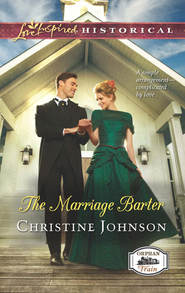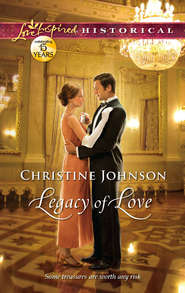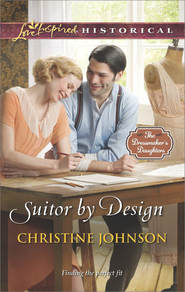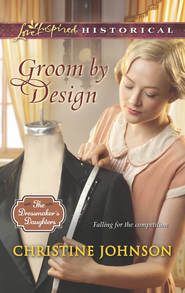По всем вопросам обращайтесь на: info@litportal.ru
(©) 2003-2024.
✖
Grim anthology
Настройки чтения
Размер шрифта
Высота строк
Поля
“Maybe you know, but I’ll never know. Not as long as...” He raises his head from his hands to stare at me. A look I recognize all too well comes into his eyes.
No...
He gets up and crosses the room toward me, slowly, as if I’ll bite. I wish I could bite.
“I have to do this.” Eli picks me up with the gentlest of touches, but I can feel the fury in his bones.
Don’t put me away. You’ll regret it.
“No, Fig, I won’t. Not in the long run.” He slides me into the envelope his dad sent me in. “I have to make things happen for myself. I don’t even know whether people like me because they want to, or because you’re making them.”
Fine. Let me stay here in your room. Just don’t put me away. Please. Don’t be like your father.
“I’m not like him. You were the one who told me I could succeed on my own. He needed luck, but I don’t.” Eli staples my envelope shut, as if I could escape.
I’ll miss you if you put me away. I’ll be miserable and lonely.
“No,” he whispers, on the verge of tears. “Figments feel nothing, remember?”
I’ve become more than a figment with you. I thought we were friends!
“I’ve given up friends before, when they’ve hurt me.”
But I’m still your Fig. I lower my thought-voice to a whisper. I’ll always be your Fig.
Eli’s hands begin to shake, but I still hear him clearly. “No matter what?”
The toes of my boots bend against the interior of the envelope, and my paws reach out, forever. No matter what.
* * *
In a box in the attic, I lie upon something soft—clothes, I imagine—and wait for Eli to return. Because he still believes in me, I can still feel him. Sometimes I hear him downstairs in his room, playing the song I woke him to write, the song that could make him huge.
It’s cold up here. My cat ears pick up the scrabble of insects and mice, creeping about in what must be an ideal home. My plush body conforms to the shape of whatever I lie upon, the way my soul (if I have one) conforms to the shape of whomever I—well, serve is the wrong word, but it’s better than love.
When Eli moves away—to college or stardom—I begin to fade. It takes months, maybe years. Time loses meaning. My senses dull. I forget who I am.
It ends, as always, in darkness.
Epilogue
A veiled light meets my eyes.
“There you are,” a woman whispers. “Just where he said you’d be.”
A slight rip of paper, then I’m tugged out to see her. Familiar, I think, but...was her hair always that gray?
She stands, crosses the attic, then carries me down creaky stairs, clutching me to her side.
We enter a living room, where the television is on, playing the Grammy Awards. “My friends were going to come over to celebrate,” the woman says, “but I told them I was sick. Eli wanted to make sure you saw, so I figured it should just be you and me.”
Eli...I know the name. Was I once his? Were we each other’s?
I don’t think she can hear me. She sets me on a coffee table, propped against a stack of magazines.
Wait! Was that his face on the cover?
She definitely can’t hear me, and I can’t turn to face the magazines. I strain to see out of the corner of my eye, but these eyes don’t seem to have corners.
“Coming up next,” says the voice on TV, “Grammy nominee for Best New Artist—Eli Wylde!”
Eli...
When they return from commercial break, he’s there onstage, just him and his guitar. His age shocks me—I expected to see a twenty-year-old Best New Artist, but this man’s closer to thirty. It took him thirteen years to reach this height without me, but he reached it, with the song I made him write.
When he wins, his acceptance speech is full of names I don’t recognize. The only name I know is Lyra, whom he refers to as his “oldest friend.” I feel so displaced by this; at our last time together, she was his newest friend.
Finally Eli looks straight at the camera. “Last of all, I’d like to thank my father, Gordon Wylde. We never met in person, but he gave me the most important, most real gift I’ve ever received.” He leans in close to the mic and speaks in a near whisper, holding up his award. “Fig, I’m bringing home a new pair of boots.”
* * * * *
THE TWELFTH GIRL
by Malinda Lo
Harley was the kind of girl who could get away with anything. That was the first thing Liv learned when she arrived at the Virginia Sloane School for Girls in mid-October. It wasn’t only that Harley flouted the dress code and skipped class and ignored the curfew without ever being reprimanded. There was something disquieting yet seductive about her, like walking on the edge of a cliff while gazing down at the violent beauty of the ocean breaking below. Somehow it seemed as if Harley could jump—would jump—but instead of falling, she’d spread her arms and fly like a blackbird.
Liv had known girls who acted like Harley before, but never someone quite so successful at pulling it off. Harley was definitely the most interesting thing about the Sloane School, and from the first time Liv saw her—walking into class twenty minutes late, dressed in tight jeans and boots instead of the uniform, her black hair wind-tossed and wild—Liv didn’t know if she wanted to be Harley or if she wanted to kiss her.
Harley’s friends, too, seemed to benefit from her apparent invincibility. They lived together in Eleanor Castle Hall, a small, turreted fantasy of a dorm on the edge of campus. Castle had twelve rooms, all singles, each taken by Harley and her group. Everybody knew they went out dancing every night until three in the morning, and they never got caught, even though the campus gates were locked at 10:00 p.m., and every dorm had a resident advisor who knocked on your door if you even played your music too loud. The rumor was that Harley had a rich father who had given so much money to Sloane that Harley—and everybody she liked—was immune from the rules.
Liv wanted to be immune, too. Her parents had transferred her to Sloane after she got in trouble at her old school in New York City for missing curfew too many times. Liv was pretty sure her parents had chosen Sloane because there was nothing to miss curfew for in Middlebury, Massachusetts, the quiet town where Sloane was located. If Harley somehow got off campus to party every night, Liv wanted in, but neither Harley nor any of her friends seemed the least bit interested in getting to know the new girl. Their collective cold shoulder annoyed Liv, who was used to being noticed for all the right reasons, and it only made her more determined to figure out how they got away with what they did.
One afternoon about a week after she first arrived at Sloane, Liv walked into Middlebury to buy shampoo at the drugstore. As she approached the shop, she saw a pink neon hand in the window upstairs. The sign next to the hand read Madam Sofia’s Fortunes & Favors. Liv was gazing curiously at the sign—it seemed, almost, to beckon to her—when the door next to the drugstore that led upstairs opened. A girl dressed all in black barreled out onto the sidewalk, nearly smacking into Liv.
“Hey, watch it!” Liv cried.
The girl didn’t stop, tossing her only a brief glare before she continued down the street in the direction Liv had come from. She recognized the girl; it was Paige, one of Harley’s friends. Liv watched Paige disappear around the corner, then glanced at the door she had come out of. There was a small placard in the glass window. Sale: Five Minutes for Ten Dollars. Find Your Future Here. Impulsively, Liv opened the door and went up to the palm reader’s shop.
A gray-haired woman in a green velvet dress turned from the window overlooking the street when Liv entered. The woman’s eyes narrowed on her. “Can I help you?” she said.
“Are you Madam Sofia?” Liv asked, glancing around the shop. It was stuffed with knickknacks and baskets of trinkets.
“Yes.”
“I saw your sign in the window,” Liv said. “‘Five minutes for ten dollars.’”
An odd expression passed over Madam Sofia’s face; it reminded Liv of a key turning in a lock. “Follow me,” the woman said. She led Liv through the cluttered shop to a back room hung with curtains and furnished with a round table and two chairs. Madam Sofia sat down and took out a kitchen timer from beneath her chair. She set it for five minutes and placed it on the table. “Give me your hand,” she said.











